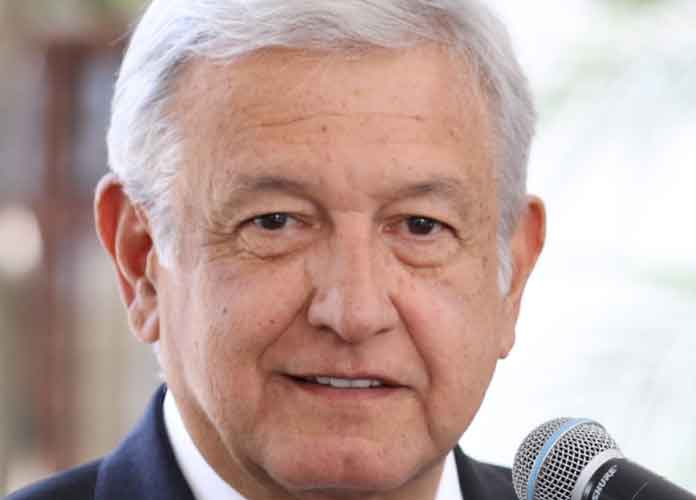Far-Left Candidate Lopez Obrador Wins Mexican Presidential Election In Landslide
Leftist candidate Andres Manuel Lopez Obrador, a political veteran, won Mexico’s presidential election late Sunday by a landslide after running on a campaign of promises to end corruption in the country and help its working-class citizens.
Andres Manuel Lopez Obrador Wins Mexico’s Presidency
The 64-year-old Obrador of the far-left socialist party MORENA — an acronym for “National Regeneration Movement” and a party he founded in 2014 — won with around 53.6% of the vote, well ahead of the three other major candidates who ran. Obrador, who served as mayor of Mexico City from 2001 to 2005, was considered the heavy favorite to win the presidency months before the election. He beat out 39-year-old right-wing PAN party candidate Ricardo Anaya (22.6%), center-left PRI party candidate Jose Antonio Meade (15.5%) and independent candidate Jaime Rodriguez Calderon (5.5%). The first two candidates conceded defeat quickly, reportedly within 45 minutes of the polls’ closing.
SLIDESHOW: DONALD TRUMP’S 30 CRAZIEST TWEETS
Among the promises Obrador — known to many as AMLO — made throughout his campaign were increased pensions for the elderly, financial support for farmers and educational grants and other benefits for young people. High levels of longstanding anger over the corruption and violence in Mexico — from drug cartels and other criminal organizations — also helped propel Obrador, a longtime supporter of the poor who himself comes form a humble background, to victory.
Subscribe to our free weekly newsletter!
A week of political news in your in-box.
We find the news you need to know, so you don't have to.
Obrador previously ran for president in 2006 and in 2012, and refused to concede defeat after both failed bids, claiming the elections were fraudulent. He will replace current president Enrique Pena Nieto, who couldn’t run for re-election as Mexico’s laws dictate that the country’s top leader can only serve one six-year term. Pena Nieto has long been heavily criticized by Mexicans, and his approval ratings are at an all-time low.
50 Celebrities Who Have Died In 2018 – Tribute Slideshow
“I call on all Mexicans to reconciliation, and to put above their personal interests, however legitimate, the greater interest, the general interest,” Obrador said in his acceptance speech on Sunday night. “The state will cease to be a committee at the service of a minority and will represent all Mexicans, rich and poor, those who live in the country and in the city, migrants, believers and nonbelievers, to people of all philosophies and sexual preferences.”
Obrador has been compared by some to Bernie Sanders because of his socialist views, but also to U.S. President Donald Trump because of his brash personality and large ego and the fact that he is an anti-establishment candidate. However, AMLO has much more political experience than Trump. Obrador was president of Mexico’s Democratic Revolutionary Party (PRD) from 1996 to 1999, but then left the party in 2014 to found MORENA.
Mexico’s murder rate has been one of the highest in decades, with journalists and young people in particular being slaughtered more than nearly ever before.
Among the issues Obrador will now have to deal with are Trump’s insistence on building a southern border wall and his threat to pull the U.S. out of the North American Free Trade Agreement. Obrador has promised to keep Mexico in NAFTA. Trump congratulated Obrador on his victory in a tweet:
Opponents of AMLO have predicted that he could become a leader similar to Hugo Chavez, Venezuela’s socialist president who caused his nation to enter into severe economic despair.
Obrador is nicknamed “El peje,” which refers to the “pejelagarto,” a fish from his home state of Tabasco. His term in office will officially start on December 1.
Get the most-revealing celebrity conversations with the uInterview podcast!








Leave a comment